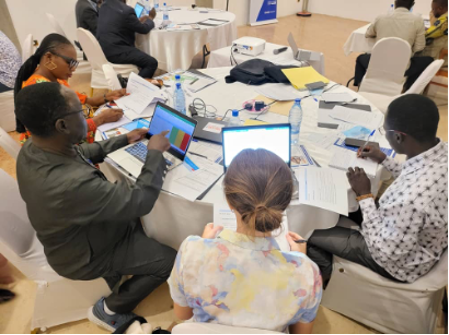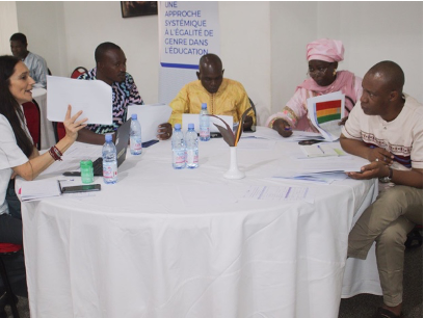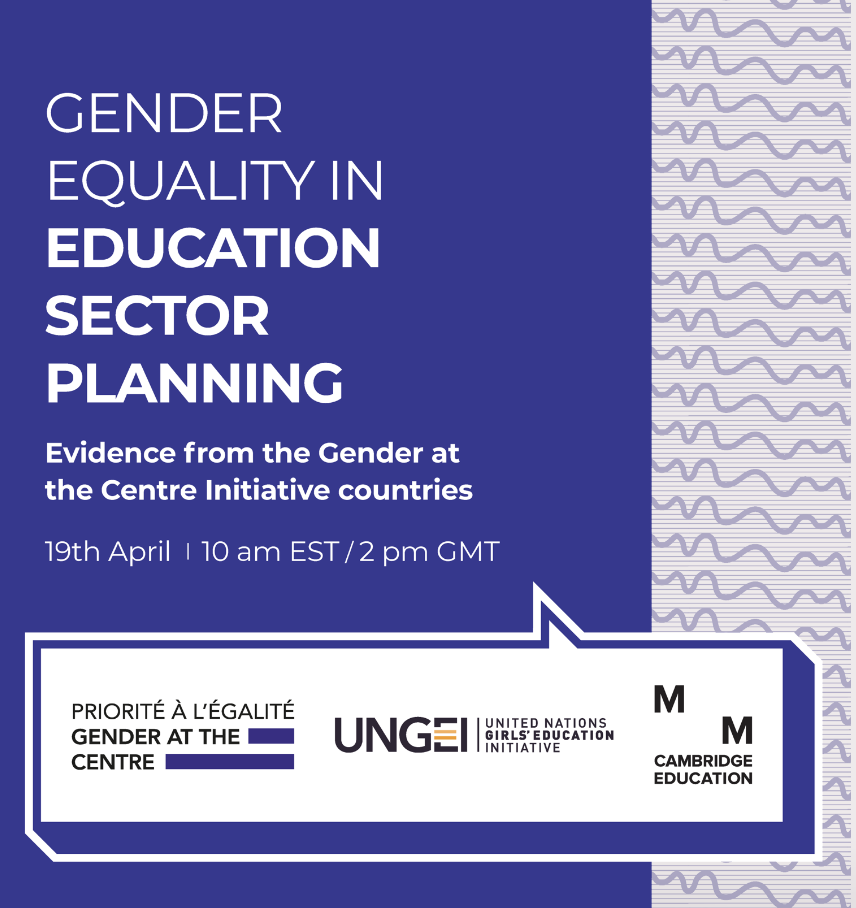In 2021 UNGEI and the Global Partnership for Education (GPE) developed a tool to rapidly assess gender equality in and through education. The Gender Equality in Education Snapshot (GES) Toolkit is designed to support education planners and practitioners to conduct a rapid assessment of a country’s situation on gender equality in and through education. Through a user-friendly, interactive tool users compile data on six key areas of gender equality in education: (1) education opportunities, (2) gender norms & practices, (3) institutions outside education, (4) education laws & policies, (5) education systems, and (6) education outcomes. The result is a visual representation of the country’s strengths and weaknesses across the six dimensions.

In 2022 UNGEI, through the Gender at the Centre Initiative (GCI), started supporting Ministries of Education and Local Education Groups to conduct rapid assessments of gender equality in education, using the GES Toolkit. In Tchad and Mali UNGEI engaged in a coaching process with the Ministry of Education, working closely with the data and planning departments to learn how to use the tool and collect and validate relevant gender equality data. After the assessment, UNGEI and the Ministry co-facilitated a national dialogue workshop with the Local Education Groups to discuss assessment results and define pathways for further analysis and planning.
Mahamat Seid Farah, Permanent Secretary, Ministry of Education, Chad

In both Mali and Chad Local Education Group members testified having gained a stronger awareness of gender discrimination issues in education by looking at the assessment results. Especially the data on social norms, with for example 77% of women in Chad accepting that a husband can beat his wife, served as eye-opener. CSO partners such as Humanity and Inclusion stated that the assessment results will inform their programming and help them to advocate for gender-transformative education. In Chad the results will be used by the Ministry of Education to inform the development of the new education sector plan. And in Mali LEG members used the assessment results to advocate for the acceleration of the implementation of gender-related activities in the PRODECII 2019-2028 education plan.
N'deye Batio Sène, Gender Technical Advisor, Ministry of Education, Mali
The piloting of the GES Toolkit has demonstrated the tool’s potential to support countries to collect and present gender data in an easily digestible way, and to stimulate a national dialogue on gender equality in and through education. It has helped raise awareness on critical gender weaknesses within the education system, and informed gender-responsive education sector planning. In 2023 the Gender at the Centre Initiative will use the toolkit in other GCI countries and will partner with GPE to support more countries in conducting gender in education assessments.



 English
English العربية
العربية Български
Български Hrvatski
Hrvatski Čeština
Čeština Dansk
Dansk Nederlands
Nederlands Suomi
Suomi Français
Français Deutsch
Deutsch Ελληνικά
Ελληνικά हिन्दी
हिन्दी Italiano
Italiano Română
Română Русский
Русский Español
Español Maltese
Maltese Zulu
Zulu አማርኛ
አማርኛ